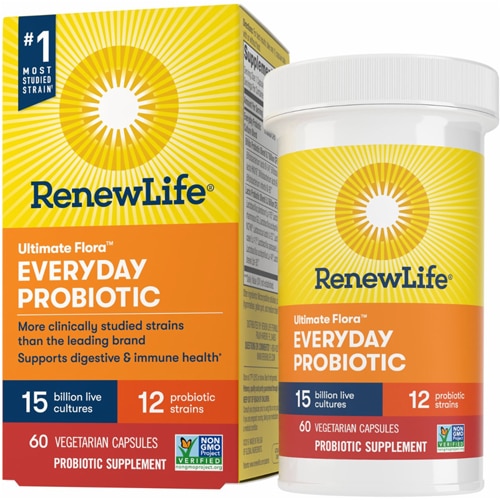[vc_row][vc_column][vc_column_text]
Dietary supplements are a fascinating invention of the modern age. For the vast majority of human history, the distinct identities and functions of nutrients in food were as inconceivable as the internet. While it was clear that food provided energy and maintained health, the discovery of
how it does so is surprisingly new and incomplete.

It took the deduction of a few assiduous physicians, chemists and scientists in the late 19
th and early 20
th century to
connect certain dietary patterns with disease symptoms and confirm that foods are composed of unique substances that are vital for the optimal function of our nervous system, immune system, bones and nearly every facet of our bodies. From this fortuitous breakthrough evolved a practical way to supply isolated, concentrated micronutrients to supplement our food intake and fill nutritional gaps.
Population-specific to global phenomenon
The Food and Drug Administration’s
Dietary Guidelines for Americans, inspired by the age of vitamin discovery, continue to highlight specific
groups at risk for nutrient shortfalls. Pregnant women are advised to supplement their diets with folic acid for proper fetal neural tube development. Older adults are encouraged to supplement with
vitamin D and
calcium to address bone loss.
Vitamin B-12 and zinc, found primarily in animal protein, are commonly recommended for vegetarians and vegans. Quick-absorbing supplements may be critical for those with impaired digestion or intestinal function.
Fortification of various food commodities is another outcome of the vitamin revolution.
Enhancing B-vitamin levels in grains eradicated or substantially reduced common deficiency diseases and markedly decreased birth defects in the developed world. The success of the US food fortification program, which began in the 1940s, added another boost to the increasing regard for supplements in achieving ideal health.
During today’s stressful and unpredictable conditions and with rising healthcare costs, consumer demand for wellness-promoting products is at an all-time high. Whether in capsule, tablet, liquid, powder and even gummy form, dietary supplements command an impressive market sector with no signs of slowing down. In 2020,
sales in the U.S. topped $50 million, with steady growth predicted despite turbulent economic times. E-commerce now provides quick and convenient access and digital marketing demands attention thanks to celebrity influencers.
Consistent
data shows that roughly half of U.S. adults and children report taking at least a daily multivitamin. A lesser proportion add single nutrients or health-specific formulas, but those who do prioritize bone, heart and immune health. Older adults are far more likely to rationalize taking four or more products to “improve” or “maintain” overall health rather than to target a specific concern. Yet in an interesting “chicken-or-egg” scenario, many s
upplement-takers report “good” to “excellent” health.
Why are supplements recommended?
Theoretically, a well-balanced diet contains everything humans need to thrive, but there are factors that make this a reality for few people. Even with admirable efforts of public health education, ongoing evidence shows that most Americans do not follow healthy eating patterns.
Less than one-third consumes the recommended daily amounts of nutrient-packed vegetables and fruit, and many are not consuming adequate amounts of several “shortfall” nutrients like calcium, vitamin D, iron and vitamin A.
Busy lifestyles, constant access to tasty-yet-nutrient-poor convenience food, rising food prices and heightened stress are just a few of the reasons we don’t always meet our micronutrient needs. Another uncontrollable but no less critical factor is the
diminishing agricultural soil quality in agricultural regions around the world. Threshold-level nutrient inadequacies can cause fatigue,
brain fog or frequent illness that many ignore as “normal” but may indicate more serious underlying disease.
When are supplements helpful?
Citing consistently substandard dietary surveys, many public health organizations maintain their stance that
children and adults should balance their diets with a supplement. Several
studies show that even those taking a basic multivitamin are more likely to have sufficient levels of essential micronutrients and to have significantly lower disease-related biomarkers.
B-vitamins are essential for energy production, cellular reproduction and maintaining metabolic balance. Vitamin C, zinc and magnesium promote immune function, while many potent botanical compounds fight damaging free radical cascades. Clinical
data promotes the efficacy of
omega-3 fatty acid supplements for supporting cardiovascular health, and protein powders offer an easy way for older adults to help sustain muscle mass as they age.
†
Dietary supplements are intentionally labeled in a way that offers customers an easily understandable way to gauge their consumption of necessary nutrients.
Percent Daily Values, displayed in FDA-mandated Supplement Facts panels, are based upon established reference intakes that undergo regular review with the latest public health statistics in mind.
Can you take too many supplements?
What began as a benign and purposeful public health project is frequently called the
“wild west” today, calling for greater vigilance from consumers. The incredible market success of dietary supplements has invited interest from every direction, bringing both scientifically backed formulas and untried ingredients from questionable sources. Depending on who you ask, expert witnesses either laud or loathe supplements.
Case reports of Americans taking erratic and inexplicable quantities of products show that such behaviors can have alarming impacts on liver and neurological function. But are these rare instances ground for clearing out your supplement cabinet? Plenty of good safety
data exists, but reputable experts continue to urge caution among supplement users.
The United States Preventive Services Task Force recently published their latest report on the purported efficacy of dietary supplements. A
systematic review of eighty-four studies suggested little to no benefit to be gained when nutritionally adequate adults added several commonly taken formulas, and reiterated the risks associated with some isolated vitamins and minerals in certain populations.
The latest conclusions were hardly groundbreaking, but the report offered a timely reminder that supplements are not a silver bullet. Even competent advocates highlight the many unknowns with long-term supplement use. Furthermore, these experts emphasize the cumulative effect of taking multiple products alongside fortified foods.
While water-soluble nutrients are cleared quickly, other excess vitamins and minerals are stored in the body and require more complex elimination steps. Metabolic differences can have a significant impact on individual absorption and assimilation, meaning that safe amounts for some may be more risky in others.
Many ingredients have contraindications with pharmaceuticals and some health conditions, so federal health guidance always recommends consulting with your healthcare provider before beginning or changing supplements. Unfortunately,
feedback from consumers reveals that only one in four patients discloses their supplement regimen or asks their doctor’s advice when starting a new product. Ideally, they will also assess your blood levels as part of your regular checkup and see if you might have a shortfall nutrient or two.
Smart supplementation
Colorful, nutritive foods deliver a magical synergy of macro- and micronutrients in the best form for your body, but supplements can offer a simple and affordable option for individuals who may benefit from a bit of dietary reinforcement. But as with any important choice you make for yourself or your loved ones, lay the best foundation for your decision-making by
thoroughly educating yourself.
This article might be a great excuse to begin a regular supplement audit. If you think you might be taking an unnecessary number of products, it’s a good practice to periodically take stock of the handful of supplements you swallow with breakfast every morning and consider why you take them.
Factor in the fortified foods and beverages you frequently consume, make sure you’re not accidentally doubling up on certain fat-soluble nutrients like vitamin A and vitamin E and be aware of the
safe upper limit for folic acid. Do a quick web search for the latest news on your favorite herb, and see if the evidence still backs why you started taking it in the first place.
Although they appear similar, dietary supplements are not medicine, and the suggested use is just that: a suggestion made by the brand. Likewise, as their moniker implies, supplements are not intended to replace food, despite what marketers might have you believe!
It’s easy to add every new product that pops up on your Instagram feed, but don’t wait to question your supplement lineup when you’ve run out of room in your cabinets. The Goldilocks principle carries remarkable wisdom and the “just right” answer is typically somewhere between the extremes.
For many healthy and conscientious adults who are not among those in high-risk groups, taking dietary supplements may neither help nor harm. But well-informed, physician-advised
supplementation is considered a safe, reliable backup for those times when your diet runs off the rails a bit. Savvy supplementation can foster an ideal environment for your amazing body to thrive.*
†These statements have not been evaluated by the Food and Drug Administration. Dietary supplements are not intended to diagnose, treat, cure, or prevent any disease.[/vc_column_text][/vc_column][/vc_row][vc_row][vc_column][vc_text_separator title="Featured Products" border_width="2"][vc_row_inner equal_height="yes" content_placement="middle" gap="15"][vc_column_inner width="1/5"][/vc_column_inner][vc_column_inner width="1/5"][vc_single_image image="161484" img_size="full" alignment="center" onclick="custom_link" img_link_target="_blank" css=".vc_custom_1659393914492{padding-right: 7% !important;padding-left: 7% !important;}" link="https://www.vitacost.com/renew-life-everyday-probiotic-capsules"][/vc_column_inner][vc_column_inner width="1/5"][vc_single_image image="161483" img_size="full" alignment="center" onclick="custom_link" img_link_target="_blank" css=".vc_custom_1659393930501{padding-right: 7% !important;padding-left: 7% !important;}" link="https://www.vitacost.com/vitacost-synergy-once-daily-multivitamin"][/vc_column_inner][vc_column_inner width="1/5"][vc_single_image image="161482" img_size="full" alignment="center" onclick="custom_link" img_link_target="_blank" css=".vc_custom_1659393960148{padding-right: 7% !important;padding-left: 7% !important;}" link="https://www.vitacost.com/gaia-herbs-women-nighttime-comfort"][/vc_column_inner][vc_column_inner width="1/5"][/vc_column_inner][/vc_row_inner][/vc_column][/vc_row]
 It took the deduction of a few assiduous physicians, chemists and scientists in the late 19th and early 20th century to connect certain dietary patterns with disease symptoms and confirm that foods are composed of unique substances that are vital for the optimal function of our nervous system, immune system, bones and nearly every facet of our bodies. From this fortuitous breakthrough evolved a practical way to supply isolated, concentrated micronutrients to supplement our food intake and fill nutritional gaps.
It took the deduction of a few assiduous physicians, chemists and scientists in the late 19th and early 20th century to connect certain dietary patterns with disease symptoms and confirm that foods are composed of unique substances that are vital for the optimal function of our nervous system, immune system, bones and nearly every facet of our bodies. From this fortuitous breakthrough evolved a practical way to supply isolated, concentrated micronutrients to supplement our food intake and fill nutritional gaps.



